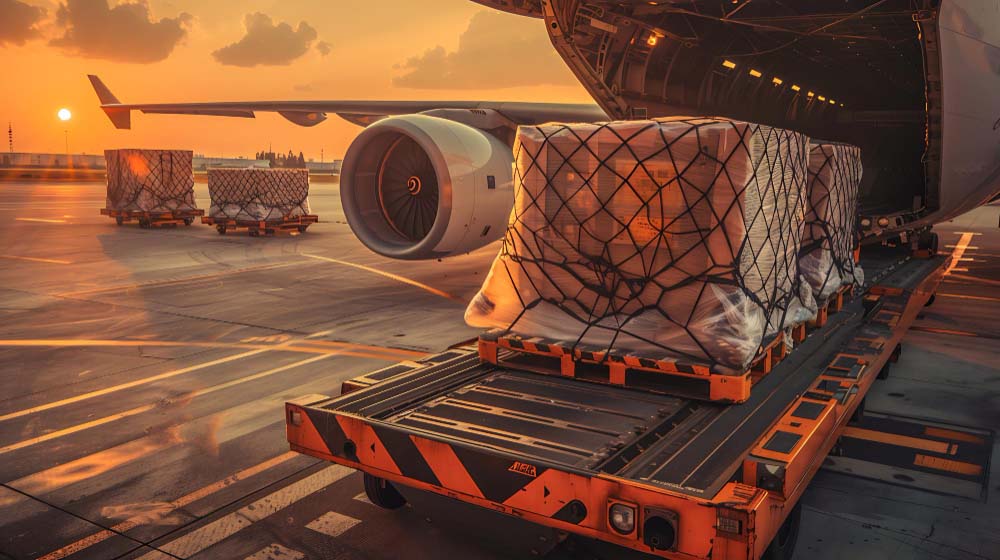BAXTER FREIGHT, your Connecta partner in the United Kingdom, underscores the critical importance of strict regulations for transporting hazardous goods, especially lithium batteries, following a recent explosion at a lithium battery factory in South Korea that killed 23 lives.

Lithium batteries are found in everyday items such as smartphones, laptops, medical equipment, and security systems. Despite their ubiquity, these batteries pose significant risks. The tragic incident in South Korea demonstrated that lithium batteries can explode if they malfunction, get contaminated, suffer damage, or overheat in extreme temperatures.
The danger persists even after a fire is extinguished, as lithium battery fires can reignite unexpectedly due to ongoing chemical reactions. This difficulty in containment has led to strict regulations for transporting lithium batteries by air.
Amidst disruptions in the Red Sea, many businesses have turned to air freight, increasing the need for meticulous handling of lithium batteries. Sarah Thompson, Associate Director at BAXTER FREIGHT’s Aviate department, emphasized the importance of proper protocols and expert handling.
Essential Information for Safe Shipping
Sarah Thompson explained, “To ensure efficient and safe transportation, it’s vital to have all necessary information from the beginning. For products containing lithium batteries, we need the UN number, proper shipping name, net quantity and amount of batteries or cells, type of batteries, and packing instruction and sub-section. This detailed information is crucial to prevent catastrophic incidents. When declared, packed, and transported correctly, incidents involving lithium batteries are very rare. Our team uses this information to tailor solutions while ensuring safety.”
Strict Protocols and Expert Handling
Thompson added, “Our Aviate team consists of air freight experts fully trained by IATA. As an IATA member, BAXTER FREIGHT adheres to global standards, ensuring all our work complies with strict guidelines, including IATA’s Lithium Battery Guidance. This ensures our customers’ goods are moved safely, securely, and efficiently across the aviation network.”
Classification and Containment of Lithium Batteries
Thompson noted, “All lithium batteries fall under Class 9 – Miscellaneous dangerous goods. They are classified as UN 3090 (Lithium metal batteries) or UN 3480 (Lithium-ion batteries) for cargo-only aircraft. When included in or packed with equipment, they are classified under UN 3091 or UN 3481, respectively.”
Prevalence of Lithium Batteries in Everyday Goods
“Lithium batteries are found in numerous products, including smartphones, tablets, cameras, watches, rechargeable power tools, medical devices, and security systems. Understanding the complexities of transporting these items is key to ensuring safety,” Thompson concluded.
For more information about the dangers of lithium batteries and safe shipping practices, please visit the BAXTER FREIGHT website. Ensuring compliance with regulations and proper handling protocols can prevent tragedies and maintain the safe flow of goods.